Yan drove barefoot, one hand on the steering wheel and the other hooked out of the window. He picked me up at the station of a small French town, where the train had left me dazed and sleepy after the overnight journey from London to Paris, then deep into the south of France in the early hours of the morning. Together we drove out of town, into the folds of the valleys and the heat of the day.
Yan was very tanned, very blond, and very German. We stopped for a croissant at a tiny village bakery. They were still warm, and a cat curled itself around our ankles. “Pierre is one of a kind,” Yan told me. “I won’t say any more. You’ll see.”
As we drove, the valley sides loomed larger and greener, impossibly sheer and lush, and I ran my fingers through the breeze. It was hot, and full of the promise of thunder.
I would be spending the next three weeks with Yan and the mysterious Pierre, and others I had not yet met, working on an organic farm in the foothills of the French Pyrénées.
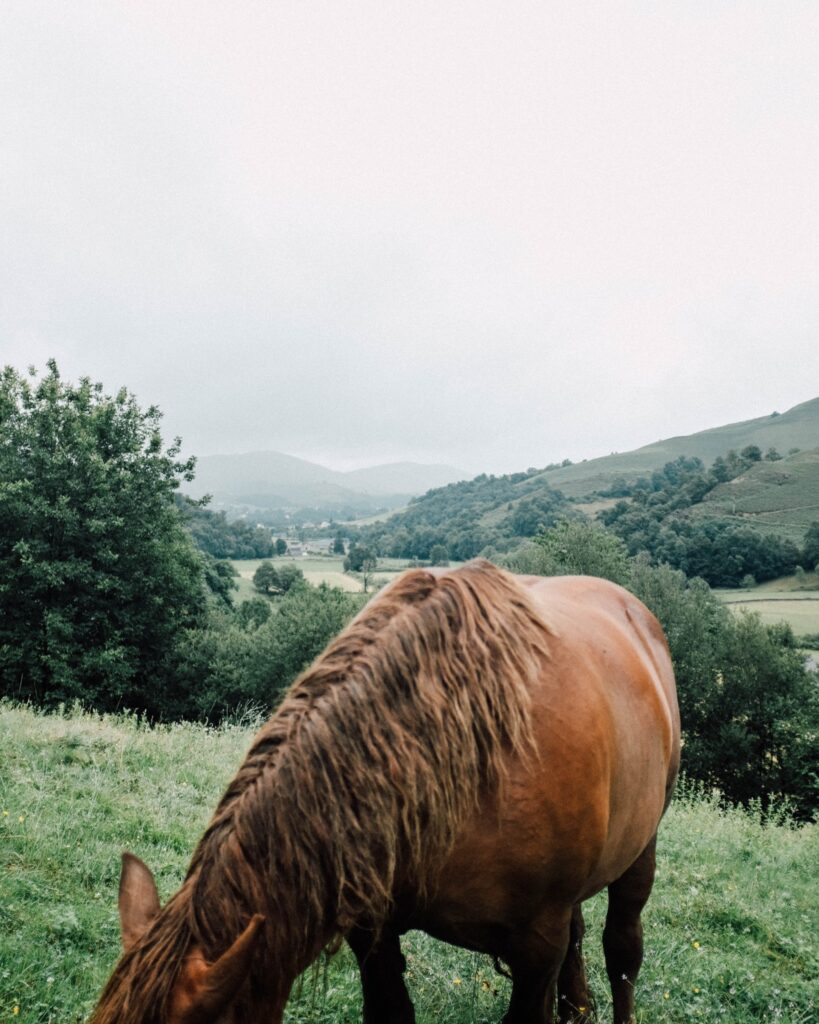
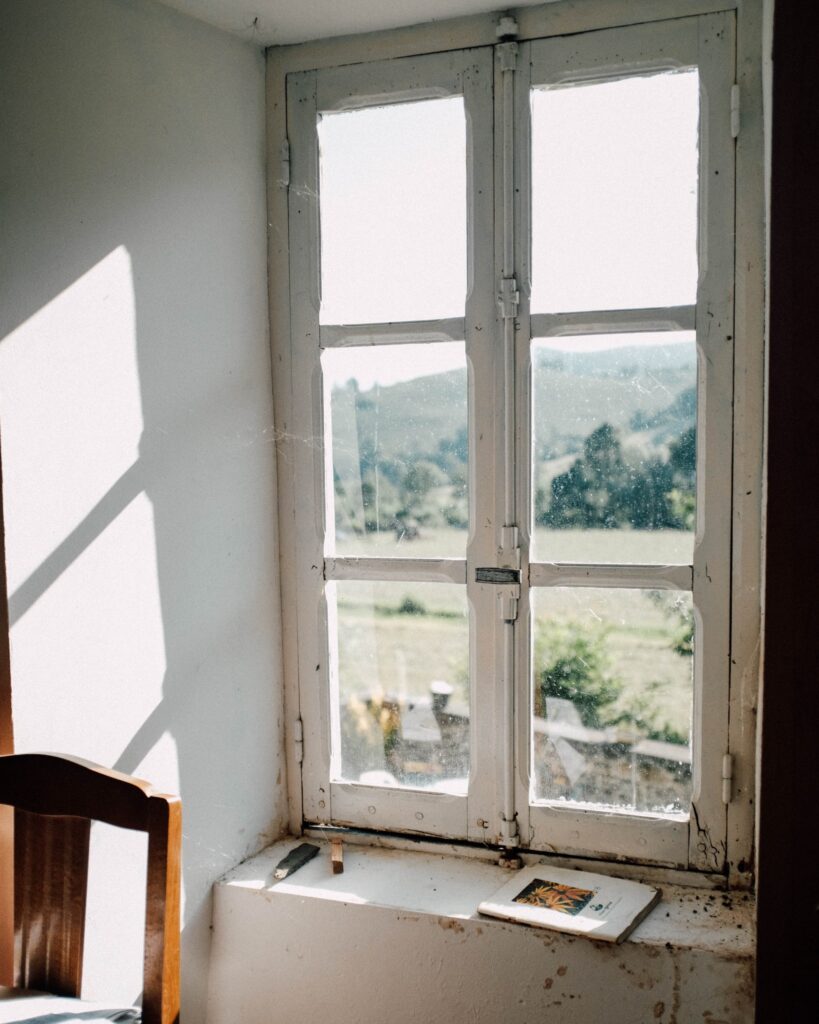
Now it’s raining, after weeks of thick, swelling heat. Seen through the small windows set deep into the walls of the stone farmhouse, the valley seems to have folded in on itself as the cloud settles in. Outside, out of sight, the vegetables are ripening, but the rain has kept us indoors. Pierre insists we make ourselves useful, so we assemble in the kitchen.
Pierre has been, or claims to have been, many things: boy genius, writer, Harvard professor, farm hand, chef. He spends the hottest part of the day watching football in his bedroom on two big screens, the lurid colors and the noise of it out of place in the muted pastels and dark wood floors of the ancient farmhouse. In the evenings, over dinner, he rants about global politics or discusses poetry and agriculture, but turns monosyllabic and expansive. Yan was right—he is one of a kind. We are all a little alarmed by him, and at the same time we crave his approval.
We are the revolving cast of characters who happen to be living on his farm this summer. We have all found Pierre on a work exchange website, drawn by the pictures of the lush green valley and promise of organic French farm life. I meet an Irish woman who lives in Madrid, Yan and his girlfriend Julie who are traveling around in their beat-up old car, a Danish girl, and a couple of American travelers. Pierre is the pin that holds us together, followed everywhere by his little dog, Ash, who is golden and perpetually smiling.
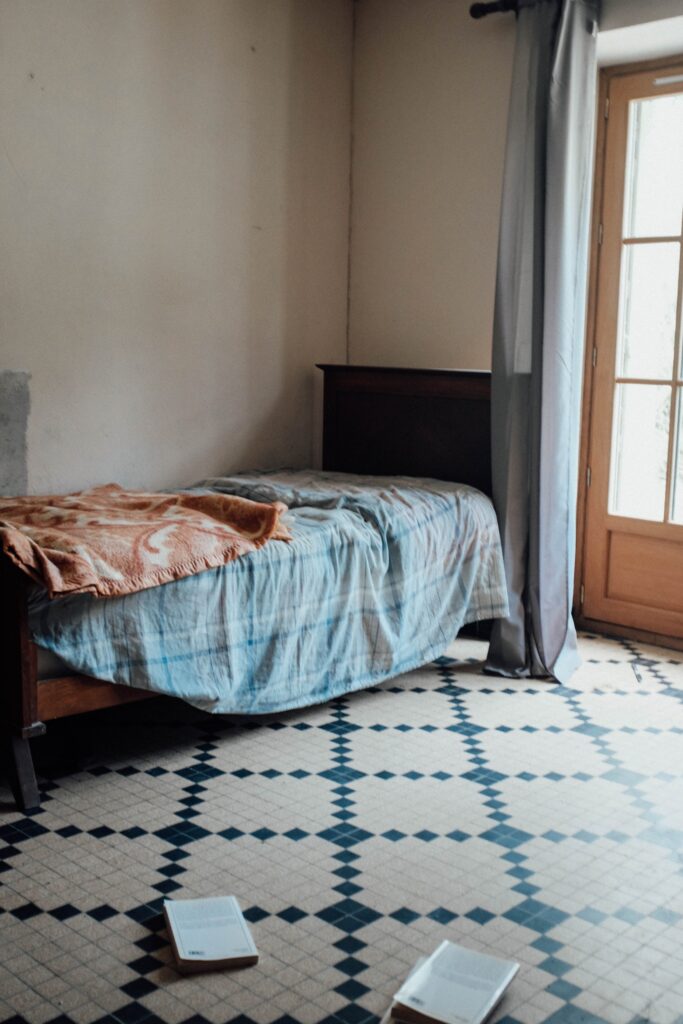
Today Pierre has decided we’re making quiches, perfecting the recipe so we can sell them at our market stall. Pierre shows me how to make a good pastry, gently mixing the flour and the water and the cold butter with the very tips of my fingers until they form a dough. I roll it, leave it to rest, then roll it again. We use our own eggs for the filling, taken from the special, secret places the hens like to leave them: in an old tire, or a dark corner of the henhouse, nestled amongst straw and feathers.
I don’t know if it’s the weather, the soil, or some black magic worked by Pierre, but we have more courgettes (zucchini) this summer than we know what to do with.
No matter how many we pick there are always more, shiny and perfect among the prickly leaves of the courgette patch, piling up in the cool darkness of the barn in yellows and greens like ingots of gold. There are more than enough for the market. And we have roasted courgette, sauteed courgette, pasta with courgette. This will be a courgette quiche.
When the heat finally breaks and the rain comes down for days on end, we sit together in the farmhouse’s main room with its tiled floor and dark wood furnishings, chopping, measuring, stewing, jarring, labeling.
We make countless jams and pickles, lining them up in sticky, jewel-toned rows to be sold or eaten on toast for breakfast.
Into the egg mix, under Pierre’s watchful eye, we add a creamy sheep’s cheese made by a neighbor: rich, sharp, and completely divine. We can see this neighbor’s house from the farm, a white speck amongst the many overlapping greens of the valley, where her family have kept sheep since roughly forever. When we were sent over to buy the cheese from her in little white wheels, she welcomed us in. We sat around her table and drank coffee with the farm hands, understanding little of what was said but joining in the laughter anyway, as the sheepdogs kept watch by the door.
We see this neighbor at the markets, smiling and waving across the bustling squares. The little villages hold markets in weekly rotations. On Mondays, it is in the hamlet on the hill with the peaceful church and view of the mountains; on Wednesdays, it is in our nearest village with the cafes spilling out onto the pavements. On Thursdays, it is in a carpark by a river; and on Saturdays, the big town where we compete with farmers from all over the region. We all pile into Pierre’s van early in the mornings, loaded up with vegetables, tablecloths, jars of jam and boxes of change. Ash rides proudly in the front seat.
As the quiche rises golden and glistening in the oven, we chop tomatoes and basil for salad. The basil is the first thing I learned to harvest. I had been late to work the first morning, exhausted by my journey and overwhelmed by the new faces, the new rules, and routines. I rolled out of bed at five past six, threw on clothes and stumbled into the cool, damp morning. I had missed the coffee. Outside in the pink tinge of early light, a group of figures was assembled at the edge of the vegetable patch. The “farm,” such as it is, stands to the left of the old stone house, where the steep valley sides flatten suddenly before they meet a stream. There are tender patches of basil and chard, a vast courgette plantation, potatoes, runner beans, mangetout, and three polytunnels full of the sharp tang of tomatoes. Pierre was showing the others how to gather the basil—just the very first few leaves at the top of the plant, which are the most tender and fragrant. I had slipped in, my lateness forgiven.
Every day it is a fresh miracle. No matter how many bags we fill with basil-tops, the next morning there will be more, freshly green and wet with dew. In the peace of the early morning valley among the sharp, wet smells everything is sacred, from the way mist threads itself through the trees to the slow, methodical patterns we make as we move up and down the rows of basil, wondering sleepily at the beauty of it all.
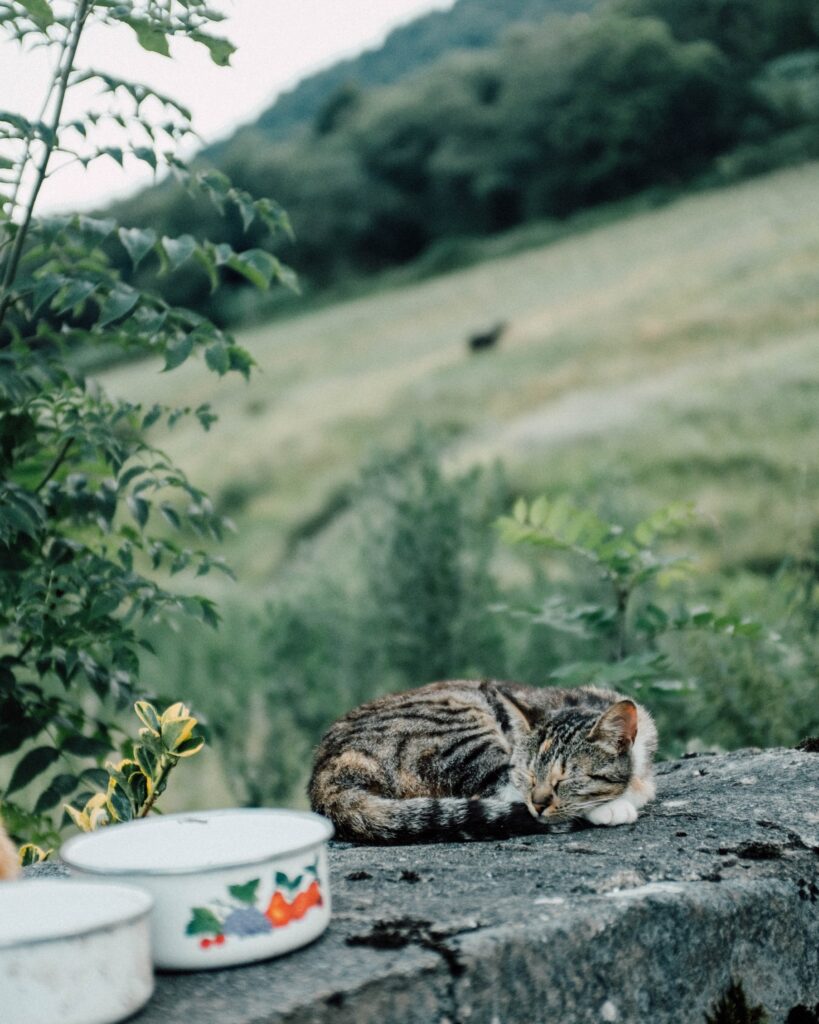
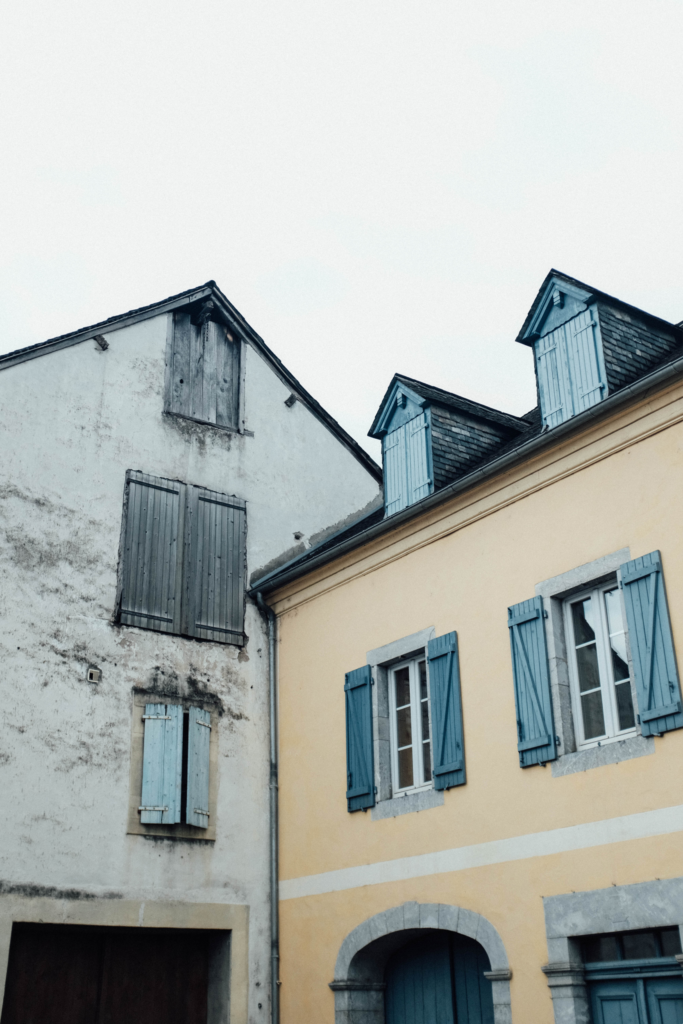
When we have perfected the quiches to Pierre’s mysterious specifications, they will find their place on our market stall, amongst our jams and chutneys, fragrant fresh basil, buckets of sweet apples from the orchard, and dusky plums picked from the tree above the dark, glittering stream. There are courgettes, of course, gleaming tomatoes in every color, and potatoes with the valley’s soil still clinging to them.
For now, though, we have the luxury of the slightly lopsided first quiches all to ourselves. The rain has stopped, leaving the air fresh and clean, and we lay the long table on the terrace as night falls. A standing lamp plugged into a precarious extension cable casts a warm glow over the mismatched crockery and the sunburnt faces, and the quiche gleams in the center of the table. There is a salad made from the ruddy potatoes we heaved out of the soil earlier in the week, and a plate of beans, sweet and tender and covered in butter.
Picking beans requires great concentration, moving along the long rows searching them out among the leaves and the soil, the unassuming plants surrendering up dozens, each one a small, joyful discovery. We line them up in their crates at the market, slender green fingers, waiting to be weighed and bagged and passed from hand to hand.
As we eat, we compare countries and languages. Pierre presides over the conversation, as ever. I focus on the food before me, most every component the culmination of hours of work in the bitter cold of spring, to plant and prepare and coax, and the sticky heat of summer to weed and water and harvest: the salads, the potatoes, the quiche, the fresh mayonnaise made with farm eggs, the warm bread with local butter, and even the boxed rosé wine that Pierre likes. Much of this we gathered with our own hands, and it is sweet and rich and sublime, fresh in the way that only homegrown produce can be. I fill my plate.
“The quiche is good,” Pierre says, and above us, the stars are coming out.
Photographs – Emily Vinson




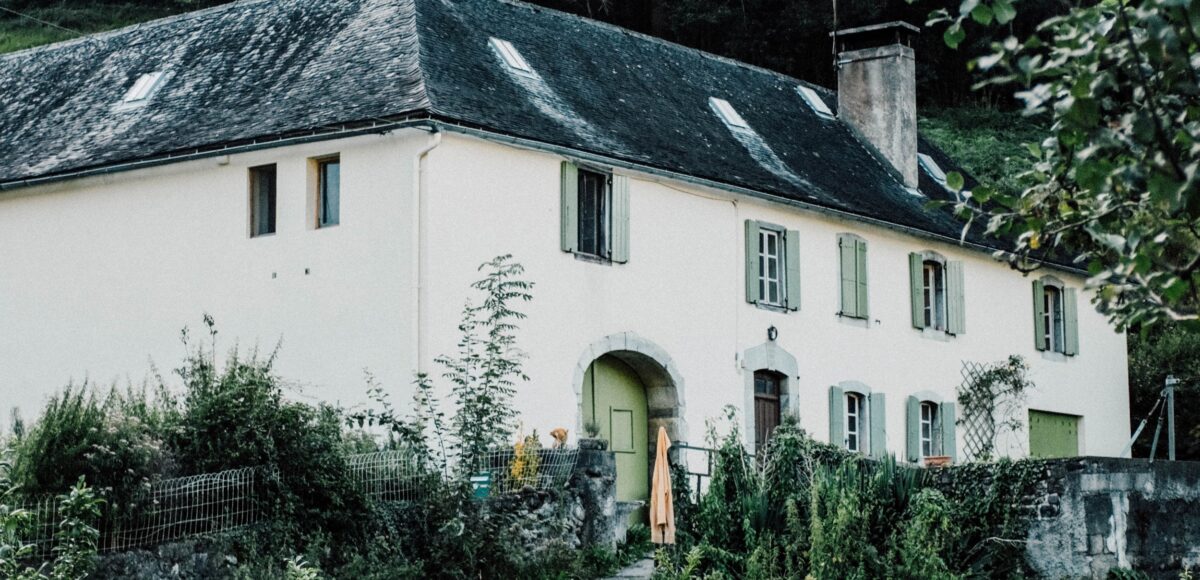



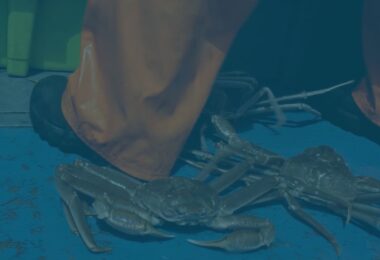
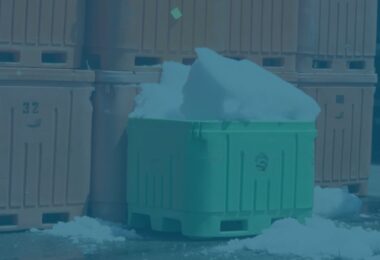
No comments